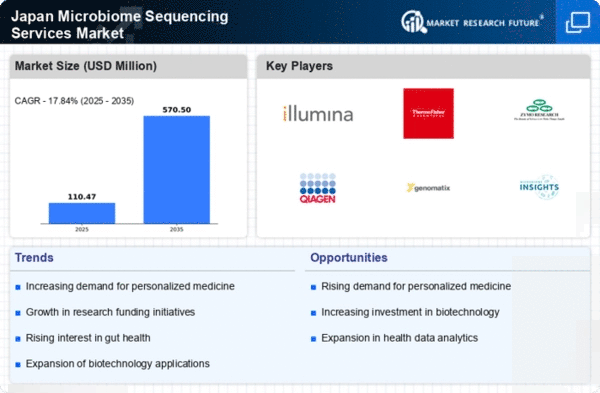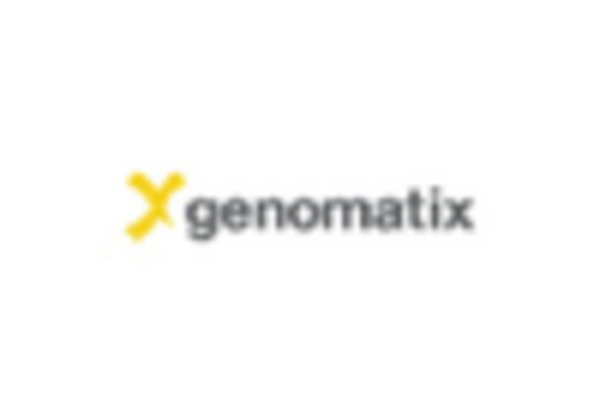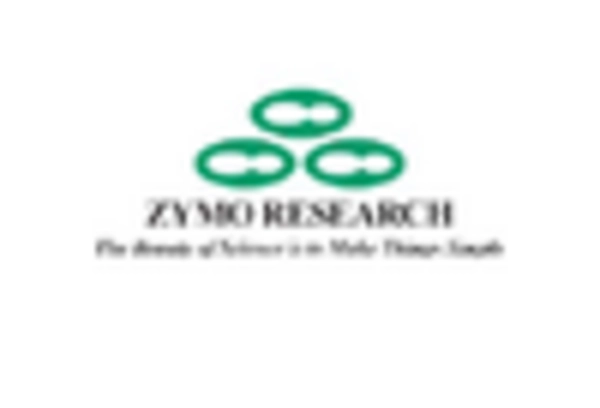Growing Interest in Gut Health
The increasing awareness of gut health among the Japanese population is driving the microbiome sequencing-services market. Consumers are becoming more informed about the role of gut microbiota in overall health, leading to a surge in demand for services that analyze and interpret microbiome data. This trend is reflected in the rising sales of probiotics and functional foods, which are projected to reach ¥500 billion by 2026. As individuals seek personalized insights into their gut health, the microbiome sequencing-services market is likely to expand, catering to both health-conscious consumers and healthcare professionals looking for data-driven solutions.
Expansion of Research Initiatives
Japan's commitment to advancing microbiome research is a significant driver for the microbiome sequencing-services market. Government and private sector investments in research initiatives are fostering innovation and collaboration among academic institutions and biotech companies. For instance, the Japanese government allocated ¥10 billion in 2025 to support microbiome-related research projects. This funding is expected to enhance the understanding of microbiome functions and their implications for health, thereby increasing the demand for sequencing services. As research progresses, the market is likely to see a rise in applications across various fields, including nutrition, pharmaceuticals, and disease prevention.
Integration of AI in Data Analysis
The integration of artificial intelligence (AI) in data analysis is transforming the microbiome sequencing-services market. AI technologies are being utilized to process and interpret complex microbiome data more efficiently, enabling researchers and clinicians to derive actionable insights. In Japan, companies are increasingly adopting AI-driven platforms to enhance their sequencing services, which could lead to improved accuracy and faster turnaround times. This technological advancement may attract more clients, including healthcare providers and research institutions, thereby expanding the market. The potential for AI to revolutionize data interpretation suggests a promising future for the microbiome sequencing-services market.
Consumer Demand for Health Insights
The rising consumer demand for health insights is significantly impacting the microbiome sequencing-services market. Japanese consumers are increasingly seeking personalized health information to optimize their well-being. This trend is evident in the growing popularity of home testing kits and direct-to-consumer sequencing services, which allow individuals to gain insights into their microbiome composition. The market is likely to see an influx of innovative products and services designed to meet this demand, as companies strive to provide accessible and user-friendly solutions. This shift towards consumer-driven health insights may further propel the growth of the microbiome sequencing-services market.
Rising Prevalence of Chronic Diseases
The increasing prevalence of chronic diseases in Japan is a notable driver for the microbiome sequencing-services market. Conditions such as obesity, diabetes, and inflammatory bowel disease are becoming more common, prompting healthcare professionals to explore the role of the microbiome in disease management. As a result, there is a growing demand for sequencing services that can provide insights into the microbiome's influence on these conditions. The market is expected to benefit from collaborations between healthcare providers and sequencing service companies, as they seek to develop targeted interventions based on microbiome analysis. This trend indicates a potential growth trajectory for the market.
















